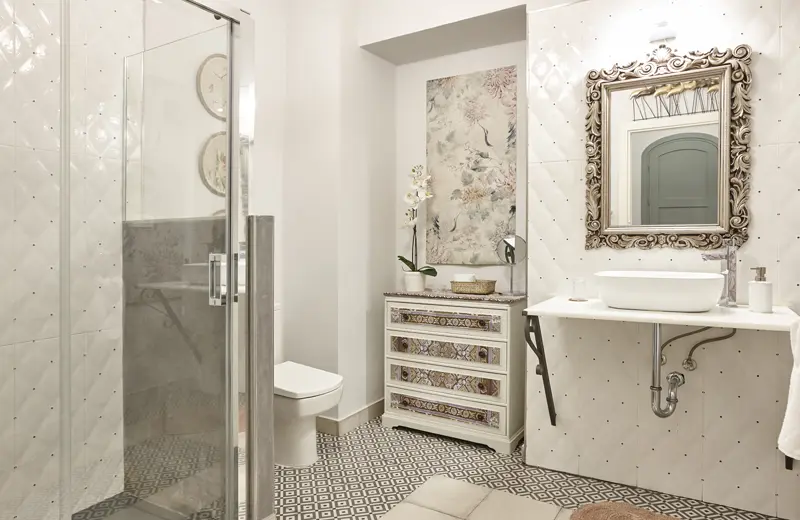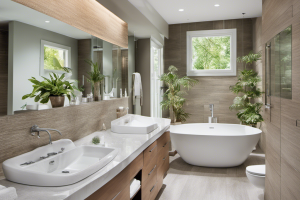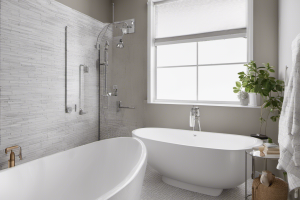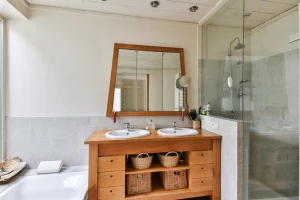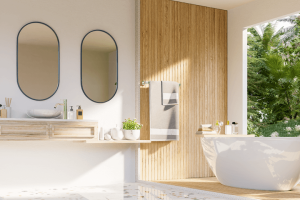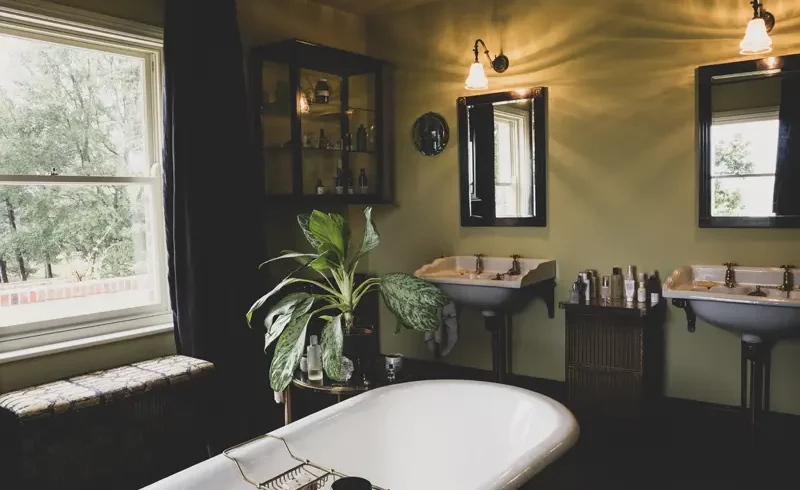
Classic bathroom designs have stood the test of time, and their elegance still inspires homeowners today. With a nod to the past, these timeless designs bring a sense of history and charm to modern bathrooms. This article will explore classic bathroom designs from the 1910s, traditional bathroom ideas, and unique medicine cabinets to help you create the perfect timeless sanctuary.
1910s Bathroom Designs: A Nod to the Past
Architecture and Design take us on a journey through bathroom designs from the 1910s, showcasing how these classic styles still influence modern aesthetics. Key elements of the 1910s bathroom include clawfoot tubs, pedestal sinks, and subway tiles. Using white and neutral tones and simple and functional fixtures creates a sense of calm and cleanliness. Homeowners can create a bathroom space that exudes timeless sophistication by incorporating these design elements.
Traditional Bathroom Ideas: Timeless Elegance
Yahoo News shares 21 timeless traditional bathroom ideas that maintain charm and elegance. From using freestanding tubs and vintage faucets to incorporating wainscoting and marble countertops, these designs blend form and function effortlessly. Classic patterns like herringbone and basket weave add visual interest to the floor, while bold wallpaper patterns can make a statement without overwhelming the space. Mixing metals, such as brass and chrome, can add depth and warmth to the overall design.
Unique Medicine Cabinets: Functional and Stylish Storage
Medicine cabinets have evolved over time, offering practical storage and serving as a focal point for bathroom design. Foter showcases a range of unique medicine cabinets that seamlessly blend form and function. From mirrored cabinets with intricate frames to recessed options that maximize space, these cabinets add personality and flair to any bathroom. Vintage-inspired apothecary cabinets or rustic wooden designs can also serve as charming and functional storage solutions.
Art Deco: A Blend of Luxury and Geometry
One of the most classic bathroom designs is the Art Deco style, which emerged in the 1920s and 1930s. Bold geometric shapes, rich colors, and abundant materials characterize this design movement. You can expect striking black and white floor tiles, curved mirrors, and sleek chrome or brass fixtures in Art Deco bathrooms. Luxurious materials like marble and glass are often used to create a sense of glamour and sophistication. To achieve an Art Deco-inspired bathroom, consider incorporating elements such as a bold statement mirror, geometric floor patterns, and metallic accents.
Victorian: Ornate Elegance and Charm
The Victorian style is another classic bathroom design that exudes timeless elegance. This design era spans from the mid-19th century to the early 20th century and is known for its ornate details, rich colors, and luxurious materials. Victorian bathrooms often feature clawfoot tubs, pedestal sinks, and vintage-inspired brass or copper fixtures. Intricate tilework, including floral motifs and decorative borders, can add visual interest and a touch of luxury to the space. To create a Victorian-inspired bathroom, consider incorporating an antique vanity, a statement clawfoot tub, ornate lighting fixtures, and rich, warm colors that evoke the period's opulence.
Classic bathroom designs continue to captivate and inspire homeowners today, offering a timeless appeal that transcends fleeting trends. By embracing the luxurious glamour of Art Deco or the ornate elegance of Victorian style, you can create a bathroom retreat that feels both personal and sophisticated. These enduring designs not only add a touch of history and charm to your home but they also provide a welcoming and comfortable space for relaxation and rejuvenation. As you embark on your journey to create the perfect classic bathroom, remember to celebrate the unique character and beauty of these timeless styles and enjoy the process of bringing a piece of the past to life in your modern home.

Laura Roberts is a talented and versatile writer passionate about creating engaging and thought-provoking content. Laura has honed her freelance writing and editing skills for various publications covering home improvement, interior design, and lifestyle.


